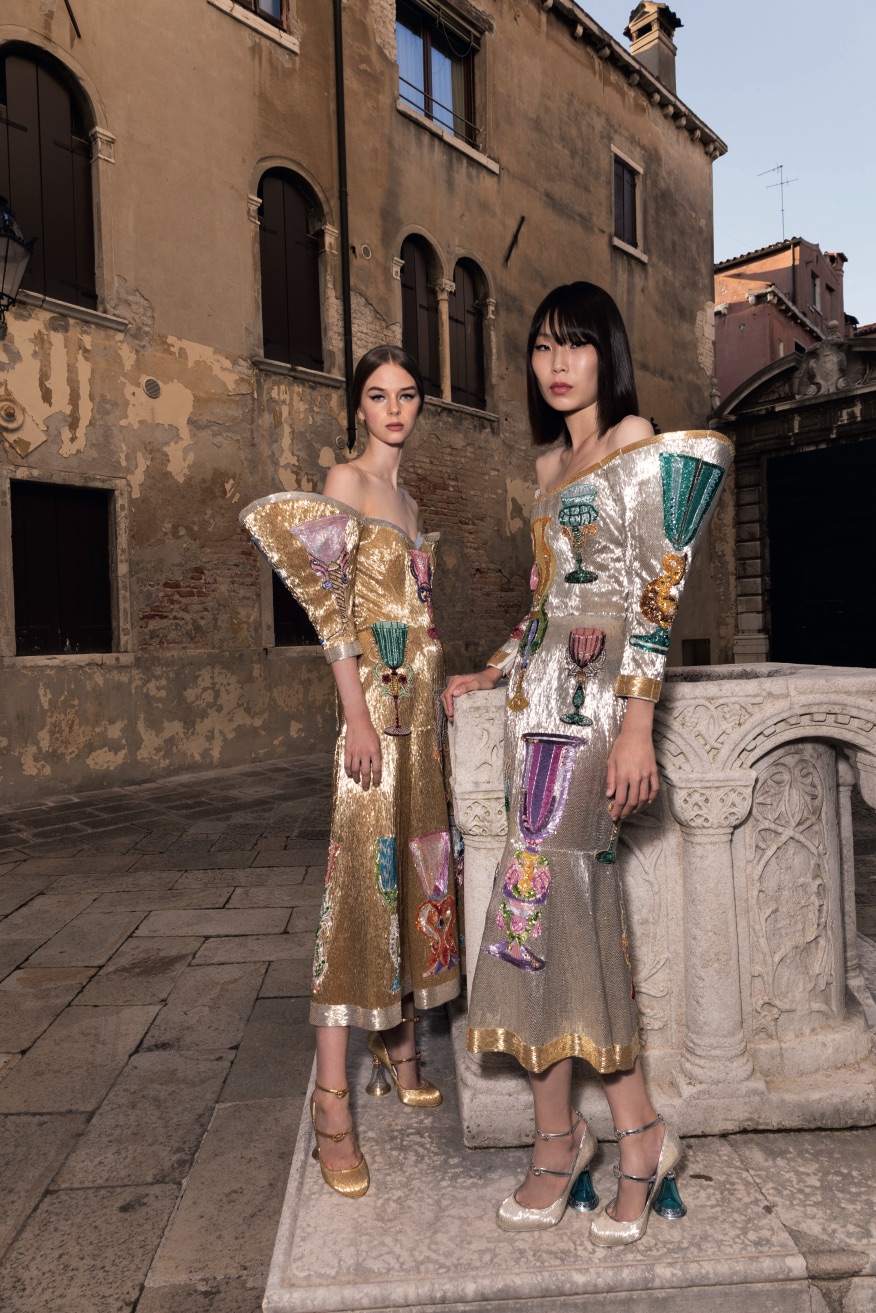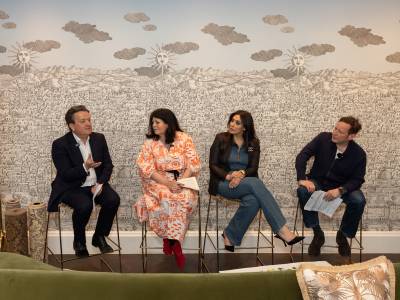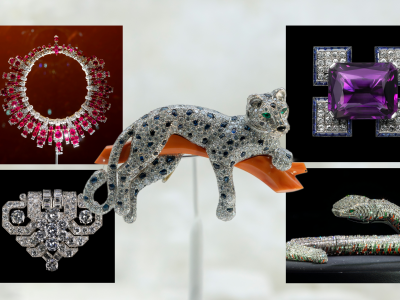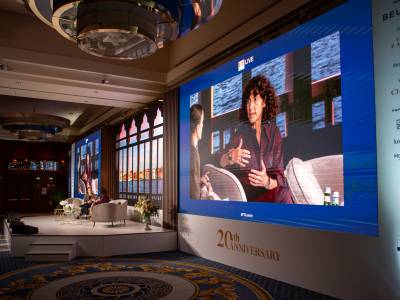The term non-fungible token (NFT) doesn’t exactly trip off the tongue, and doesn’t yet have the cachet of Chanel, Prada or Louis Vuitton but, given the attention that these bits of coding are attracting from fashion labels and luxury houses, and that they are achieving prices in the millions, it may well do soon. An NFT, to give it its technical definition, is a cryptographic token or digital asset that exists on a blockchain.
Inside the World of Luxury Fashion NFTs
20th December 2022
Introducing the multi-million pound marketplace for Fashion NFTs. The hottest items emerging from the fashion capitals of the world this year aren’t outfits, shoes, or bags. You won’t find them in a store, or be able to wear them — but if you can get hold of one you’ll be at the vanguard of fashion now.
The non-fungible element means that NFTs can’t be replaced or substituted by another version — each one is original and is verified by a digital signature, as is the case with a blockchain. So, once you own one, it’s yours and only yours. Even though they’re digital, NFTs represent or are linked to items in the real world such as works of art. Once you have your NFT in the virtual world you can then often claim the physical object or the real experience.
Now fashion houses and luxury brands are increasingly interested in NFTs and what they have to offer. According to Morgan Stanley, NFTs and social gaming could drive growth of the luxury market by more than 10% with earnings up by around 25% to hit $56 billion by 2030.
“A big part of this market’s value relies on connecting to the future target audience, Generation Z, who will represent 70% of the market by 2030,” says Diaa Elyaacoubi, chief executive of Monnier Paris, an online women’s accessories retailer. “Therefore, luxury brands must adopt their language, attention and loves. They need to embrace NFTs as a new opportunity to explore and enhance creativity.”
So who is doing what in this space?
Burberry NFTs

This summer Burberry announced a partnership with online games maker Mythical Games on a new NFT collection in its flagship title, Blankos Block Party, which made its debut last year. As part of the collaboration, the brand is creating a bespoke social space within the game where players can come together and enjoy what is described as “a unique virtual experience.”
The new NFT collection will include Burberry branded in-game accessories, including boomboxes, TB sliders, lucky horseshoe necklaces, and the Shellphone: a seashell-inspired mobile phone accessory that players can add to their virtual portfolio of online accessories. Blankos Block Party players who own Burberry’s first NFT character, Sharky B, are rewarded with a free Monogram bucket hat accessory.
Dolce Gabbana NFT
Dolce & Gabbana, for instance, has worked with UNXD, a curated marketplace for digital luxury and culture, to launch its Collezione Genesi, which featured in its Alta Moda, Alta Sartoria, and Alta Gioielleria events. Held in Venice, the designers Stefano Gabbana and Domenico Dolce drew inspiration from the history and traditions of the city, melding ancient and ultra-modern. Another collaboration between the two saw Dolce & Gabbana headlining the first Metaverse Fashion Week, which was held in Decentraland, a marketplace that hosts virtual real estate in which to create and sell clothes and accessories for avatars. The next Metaverse Fashion Week will be held from March 28-31 2023.
Balmain NFT

The Balmain Thread is the brand’s new NFT-based loyalty and rewards programme. It will provide fans with a unique, constantly evolving series of NFT offerings, while also extending unparalleled access to upcoming Balmain special events, house collections, surprise drops and what the house calls “dynamic digital experiences.”
Engagement and conversation with fans are key here. “The Balmain Thread builds upon this house’s distinctive strategy of continually exploring pathways that might strengthen our ties with the incredibly engaged, diverse and global Balmain Army,” explains Balmain chief marketing officer Txampi Diz. “We’re excited about the future that lies ahead, as the physical and digital continue to merge, offering us new ways to introduce this house to broader audiences, as we build upon [creative director] Olivier Rousteing’s determination to further democratise fashion.”
Gucci NFTs

For many brands, NFTs are an integral part of a metaverse strategy. Metaverse Ventures and Gucci Vault represent an experimental online space for Gucci’s NFTs and its other Web3 initiatives as well as vintage pieces. The brand, which recently unveiled a collaboration with Roblox, a gaming platform valued at $45 billion, is also a pioneer in the gaming field, which a growing number of luxury labels see as a way of encouraging greater engagement.
Tommy Hilfiger NFTs
Tommy Hilfiger is another label whose collections for next year have been unveiled using the creative scope offered by NFTs and Web3 — the latest incarnation of the internet, which promises to be more decentralised and to offer ordinary users more of a stake in the communities they belong to.
At the label’s New York Fashion Week show, those attending were able to create — or “mint” — a free NFT on site. All 1,200 guests, who included Kate Moss, Shawn Mendes and Kourtney Kardashian, had the opportunity to download an exclusive Tommy Factory NFT, featuring a moving image of Tommy Hilfiger taking a Polaroid in classic Warhol colour-blocked style.

“NFTs’ real potential for luxury brands is only just emerging, “says Sofia Papadopoulou, creative director and head of the metaverse advisory department at Unit9, an award-winning multidisciplinary production company working in different interactive areas: films, games, virtual reality.
“A coveted seat on a fashion show front row carries inherent exclusivity — something that can be represented very effectively by an NFT, she says. "You can imagine a world where the fashion community would trade and resell these tickets. It’s the same principle with any rare collectible. But another key benefit is that NFTs can be linked to smart contracts, which means that the original creator — in this case the fashion house — can make money from every resale transaction that takes place.”









